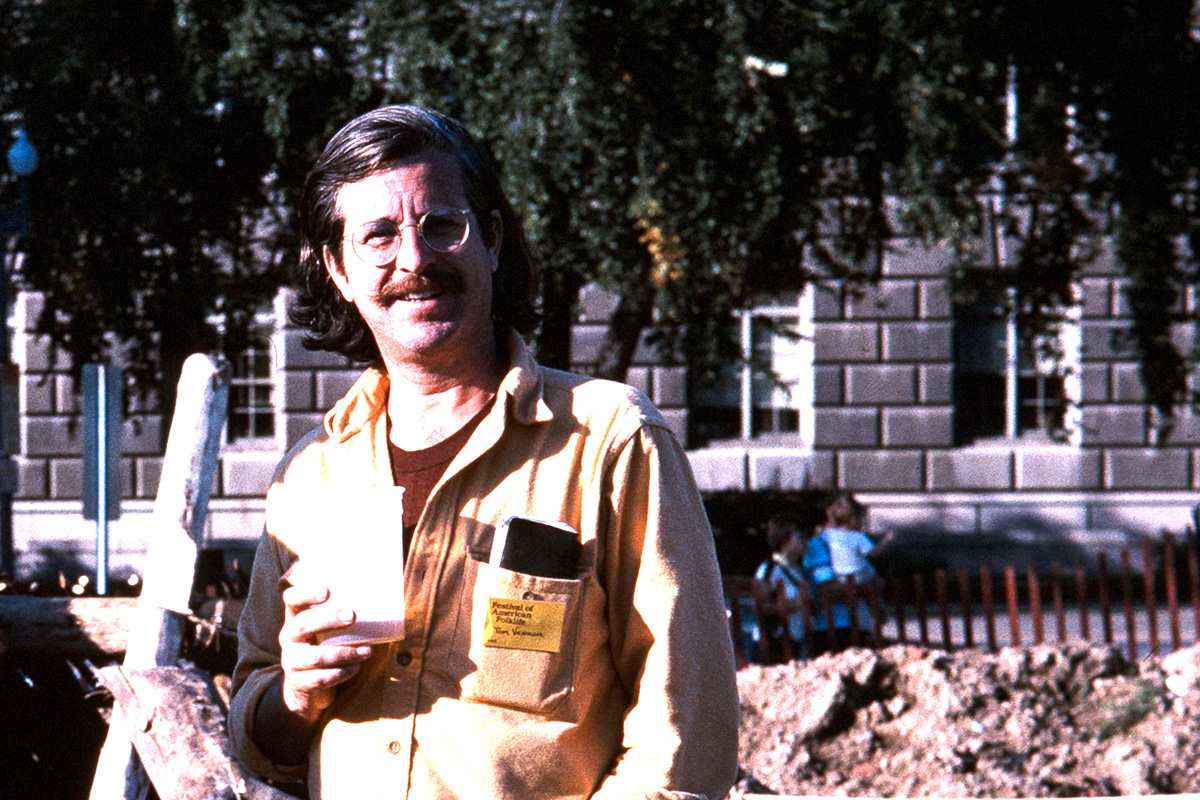Editor’s note: Our office is mourning the loss of Tom Vennum Jr., senior ethnomusicologist emeritus, who passed away on September 24 at age eighty-two. Former Folklife director Richard Kurin sent this remembrance.
We are all still trying to get our heads around Tom Vennum’s passing. Tom was one of those guys who I thought was too cantankerous to die. He beat death when he had his debilitating stroke years ago. We played music in his recovery room then—healing music from around the world, and he came back to us.
The good Dr. Vennum was without question a force in ethnomusicology. His prize-winning books have been lauded by scholars, appreciated by Native musicians, and regarded as inspiration by a seminal rock star. Tom did excellent work over two decades at the Smithsonian as senior ethnomusicologist in the Center for Folklife and Cultural Heritage, and his work changed things. His book on lacrosse, for example, gave Native people their due in inventing the game, and brought a new perspective to collegiate athletes who had been estranged from that history.
Tom produced many programs for the annual Smithsonian Folklife Festival, bringing musicians and traditional artists to the National Mall of the United States in order to show the rest of us the great talent, skill, knowledge, and wisdom that resided across the land and in Native communities. He produced award-winning documentary films, giving us a record of how Native people made drums and canoes and collected wild rice. He produced recordings on Smithsonian Folkways and other labels helping to share the voices of Native peoples—whether they be singing warrior songs, playing a powwow drum, or composing contemporary wagon-burning ballads.
I liked Tom a lot and respected him immensely. He had the academic scholarly smarts, but also that kind of deep, raw respect for the people and communities he worked with. It wasn’t a surface level façade or anything; it was the kind of genuine soulful gut feeling that grew from a detailed and humane understanding of what often struggling people went through to maintain their traditions and aspire to see them flourish.
Tom could be grumpy and tough. He was solid. He was real. He had character and was a character. We need more of him.
It was really nice to read in his obituary of his life on Madeline Island. I almost went to visit him there once. I knew he loved Madeline Island, and I should have gone. Now he will be there forever.
Richard Kurin is the Smithsonian’s Distinguished Scholar and Ambassador at Large and former director of the Center for Folklife and Cultural Heritage.


